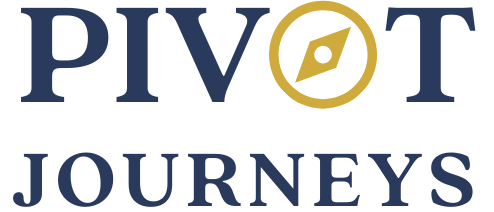Not Getting Interviews? This is Probably Why.
I recently spoke to a woman who’d been applying for jobs and not getting any responses. I asked her to forward me a job description for a job she applied for, along with the resume and cover letter she submitted. As is the case 95% of the time, that was where her problem was.
If you’re applying for jobs and not seeing responses, trust me – your documents need work. Here are a few reasons why you might not be getting a high response rate and what you can do about it.
1) YOUR MATERIALS DON’T SPEAK TO THE JOB YOU’RE APPLYING FOR.
No one can tell you your materials look great unless they’re reviewing them in connection to a specific job description.
The application is not about figuring out how to best convey all your background, experience, and skills. It’s about figuring out specifically what the employer is looking for and tailoring your experience and story to show you can fill those specific needs.
Dissect that job description for the 3-5 things they’re looking for in that position and then choose the experiences and specific bullet points that are most applicable to those 3-5 things. Anything that doesn’t seem really relevant should be tossed, as long as it’s not critical to explaining your story.
2) YOUR DOCUMENTS ARE OVERLOADED WITH DENSE PARAGRAPHS OF TEXT.
As job seekers, we often lose sight of the big picture. We decrease the font size to get everything on one page, while losing sight of giving the most important information space to breathe and shine.
How do you scan e-mails or articles? Big, lengthy paragraphs leave you scrolling and feeling overwhelmed, right? You don’t want the reader to feel that way or have trouble making sense of your documents.
On your resume: Use spaces between sections so people’s eyes can easily digest it. Bold and italics help with this, too. Put your title and organization on the left, and your dates and locations on the right, so it’s not one big string of words on one line. Use a simple format so it’s easy to figure out how the content is organized.
On your cover letter: Cut anything that’s not necessary, like reiterating your contact information in the last paragraph. Don’t tell them you’d be available to discuss the role (they know that!).
3) IT’S DIFFICULT TO MAKE SENSE OF WHAT YOU’VE ACTUALLY DONE.
When we’ve been in a specific company or field for a long time, we often forget that our jargon or acronyms are specific to our world. Explain your work clearly enough that people can actually conceptualize what you’ve done – especially if you’re trying to make any sort of role or industry pivot.
For example:
Assembled research for partners and updated landscape assessment reports.
We don’t really have a good sense as to what this person actually did. What kind of research? What does it have to do with a landscape assessment? How were they collecting the research? For what?
4) YOUR IMPACT AND ACCOMPLISHMENTS AREN’T CLEAR.
In the example above, we also don’t know the scope of the research – was this a 50-page research paper or a one-page memo? What did the partners do with it as a result?
A great way to show your accomplishments is to use this formula:
Accomplished [X] as measured by [Y] by doing [Z].
For example:
Increased small donor giving by 10% in the first year by expanding social media outreach and running targeted e-mail campaigns.
Even if you don’t directly drive key metrics, you can still show impact.
Answered heavy call volume on a multi-line phone system, redirecting calls to appropriate legal departments with constant positivity and customer service mindset.
5) YOUR COVER LETTER DOESN’T TELL THEM WHY YOU WANT THIS JOB SPECIFICALLY.
It’s critical to communicate why this role and this organization are the right fit for you at this time.
Employers want to know that you can do the job technically, but also that you want to do the job every day. Start addressing it in the cover letter.
Don’t write, “I’d be honored to work for an organization whose values and mission so closely match my own.” Tell them why. Why is healthcare an issue that matters to you? What is it about this marketing agency that tells you it’s the right fit?
6) IT’S TOO BIG OF A PIVOT FROM WHERE YOU’VE BEEN.
If you’re truly doing everything above and still not getting responses, this is probably where you’re hitting a wall.
If you’re trying to switch industries (and it’s a big change), or if you’re switching both industries and role/function areas, you’ve got to make a really compelling case as to why this is the right move for you.
You might call out that it’s a bigger change, but also spell out that your experience is transferable.
As an adjunct professor, I create compelling curriculum that engages people, even in subjects they’re not excited by and are just requirements. Given that I can get 25 freshmen into my 8am classes every semester, I’m confident I can get employees at X company excited about learning and development programming.
This is where networking comes in. It’s particularly critical to get your name in front of people who wouldn’t otherwise look at your resume because it’s too different from the typical background of those they hire.
Plus, talking with others gives you a chance to ask for feedback about the kinds of applications that stand out the most with them, so you can really make your application shine.
